Three years after a national racial reckoning that followed the death of George Floyd — and 60 years after the March on Washington — Americans remain divided on issues of race and discrimination. That’s especially true for religious groups, according to newly released data from the Pew Research Center.
In April, Pew asked Americans which was the bigger problem facing the country when it comes to matters of race: People overlooking racism when it exists or seeing racism in places where there is none.
Overall, just about half (53%) of Americans said people not seeing discrimination where it does exist was a bigger problem. Just under half (45%) said people seeing discrimination where is does not exist is the bigger issue.
Among religious groups, however, white Christians are most likely to say claims about non-existent racial discrimination is the biggest problem, including majorities of white Evangelicals (72%), white Catholics (60%) and white Mainline Protestants (54%), according to data provided to Religion News Service from Pew Research.
Few Black Protestants (10%), unaffiliated Americans (35%) or non-Christian religious Americans (31%) agreed.
Your tax-deductible gift helps our journalists report the truth and hold Christian leaders and organizations accountable. Give a gift of $30 or more to The Roys Report this month, and you will receive a copy of “Hurt and Healed by the Church” by Ryan George. To donate, haga clic aquí.
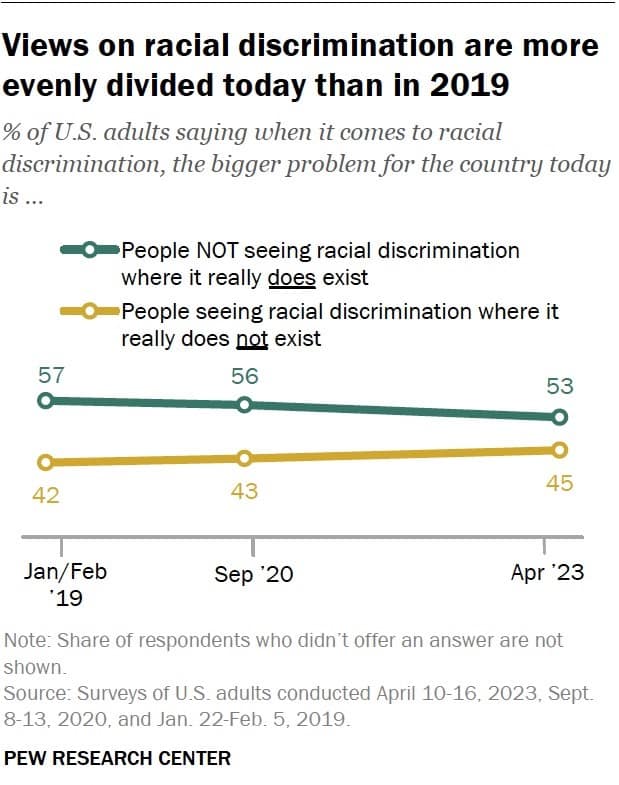
Conversely, Black Protestants (88%), non-Christian religious Americans (69%), unaffiliated Americans (64%) and Hispanic Catholics (60%) were more likely to say that people not seeing racism when it exists is the bigger problem. Fewer white evangelicals (27%), white Mainline Protestants (44%) and white Catholics (39%) agreed.
While a majority of unaffiliated Americans, also known as Nones, say that not seeing racism is the bigger problem, there were differences when it came to race, according to Pew.
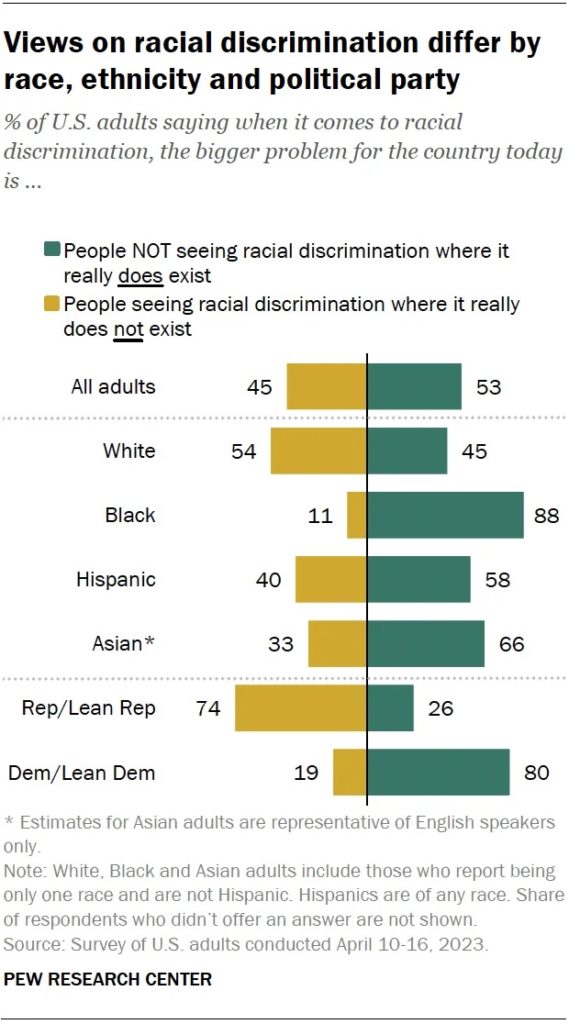
“Among White unaffiliated adults, 61% say people not seeing racial discrimination where it does exist is the larger problem for the country, while 39% say the opposite,” a Pew spokesperson said in an email. “Among Non-White unaffiliated adults, 71% say overlooking racial discrimination is the bigger issue, compared with 29% who give the opposite answer.”
Divides over issues of race have heated up among American Christians in recent years, as the so-called woke war has pitted those who do believe systemic racism is an ongoing issue against those who don’t. That divide has fueled conflicts in the Southern Baptist Convention and other evangelical groups, led to feuds in local churches y Christian colleges, become a major debate during school board meetings and been a major talking point in the current race for U.S. president. The issue of race also led to concerns about the rise of white Christian nationalism in churches.
Pew’s study suggests those divides are unlikely to go away.
Overall, more than half of White Americans (54%) said people seeing non-existent racism was the bigger problem. Eighty-eight percent of Black Americans, along with 58% percent of Hispanic Americans and 66% of Asian Americans, say people not seeing racism when it exists is the bigger problem.
Most Republicans and those who lean Republican (74%) said that people seeing non-existent racism is a bigger problem, while 80% of Democrats say the bigger problem is people not seeing racism that exists.
A similar survey in 2019 found that 57% of Americans said that not seeing racism is the bigger problem, while 42% said that seeing non-existent racism is the bigger problem.
George Yancey, a professor of sociology at Baylor University, said that other surveys have shown similar divides when it comes to matters of race and discrimination, adding that attitudes changed little even after the protests that were sparked by the death of George Floyd.
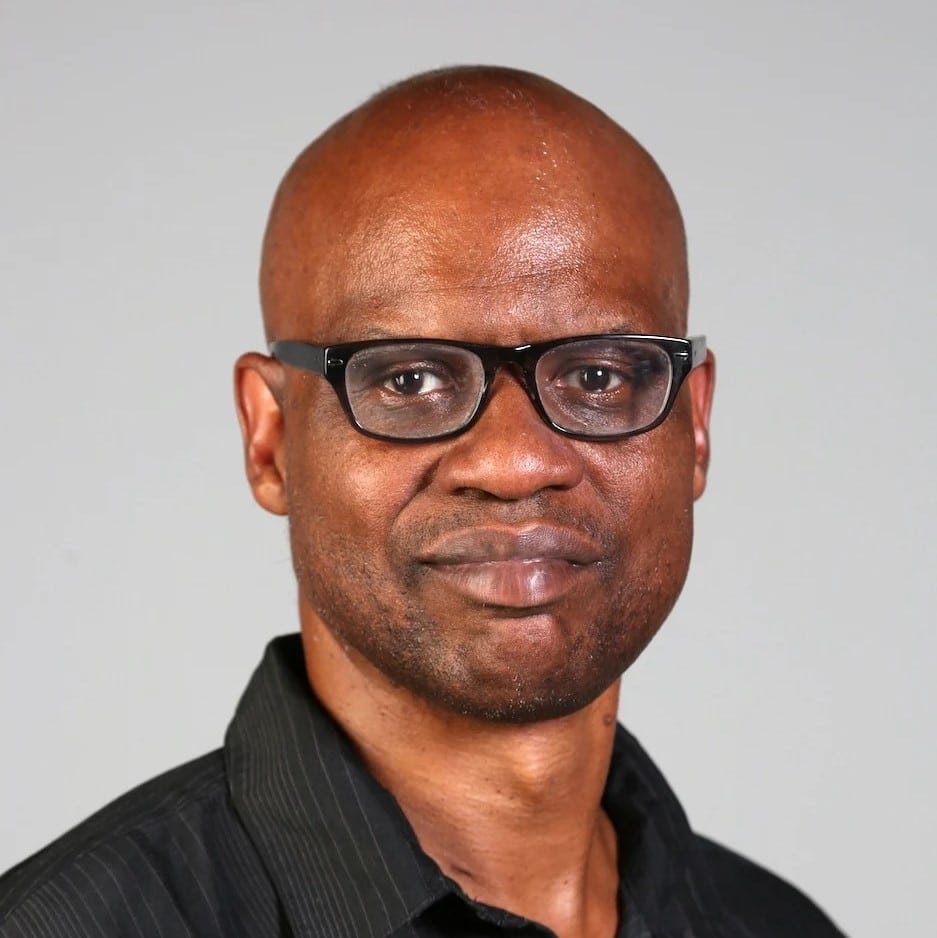
Yancey said that churches have done little to resist the influence of politics among their members. “We have taken our overall polarization and we place it into the racial debate,” he said. Politics, rather than their religious beliefs, shape attitudes about race.
He believes similar approaches happen among more progressive religious people, and as a result there’s little listening going on when people talk about matters of race. “I don’t think Christians are the source of polarization,” said Yancey. “But I do think we have not fought against it. We have accepted in and put it into our ministries rather than trying to show concern and care for people who disagree with us.”
Sociologist Michael O. Emerson, who studies religion and public policy at Rice University and co-wrote “Divided by Faith,” an influential 2000 survey of religion and race in America, suspects the trouble is more than politics. In a new book, “The Religion of Whiteness,” due out in the spring, Emerson said he and his co-author argue that the idea of being colorblind — disregarding race as having any impact on life — has become theological.
“It’s not just a ruse for politics,” he said. “It is theological. It is a transcendent reality.”
Emerson said that the religion of whiteness — a distinctly American faith, he said — has a number of symbols, including a white Jesus, the cross, the American flag and firearms. “The only way to address this is a spiritual battle,” he said. “You can’t just use politics to change it.”
Derwin Gray, pastor of Transformation Church outside of Charlotte, North Carolina, and author of “How To Heal Our Racial Divide,” also worries about how race and religion have been intertwined. In recent years, he believes, it has become increasingly difficult to talk about matters of race in churches.
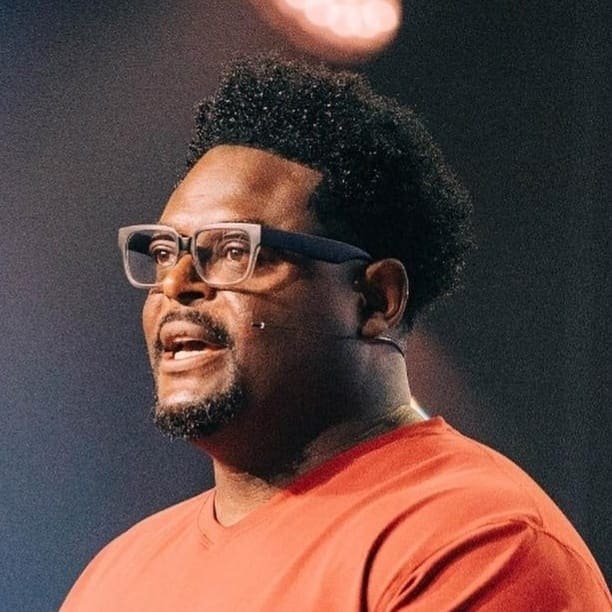
“Race and prejudice are a matter of idolatry in the American church,” said Gray. “As a pastor, I have to gospel that out of people.”
Gray said that almost every country in the world has issues of race, because human beings are by nature sinful. So, America is not unique in having to deal with the issue of race.
He said that the growing number of multiethnic churches shows that racial reconciliation can take place. About 1 in 4 congregations in the U.S. is multiracial, de acuerdo a the 2020 Faith Communities Today study.
But being multiethnic means more than just people from different backgrounds worshipping together, said Gray. It also means multiethnic leadership and listening across political lines.
In his book about racial reconciliation, Gray recounts talking with a fellow Christian leader who argued that systemic racial injustice does not exist. Instead, the leader saw American media outlets as organized efforts to discriminate against American Christians.
Gray said that most of the folks who come to Transformation Church, a multiethnic congregation of about 10,000, embrace the idea of racial reconciliation and are open to dealing with America’s racial history. But not all — and those folks often don’t stay, he said.
“If we are truly allowing Jesus to shape us, and we’re truly growing in grace, we’re going to desire the best for our brothers and sisters,” Gray said. “We’re not going to deny the impact of the past. We’re not going to live in the past. We’re going to join hands together to move forward to a better future.”
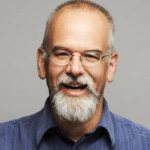 Bob Smietana es reportero nacional de Religion News Service.
Bob Smietana es reportero nacional de Religion News Service.




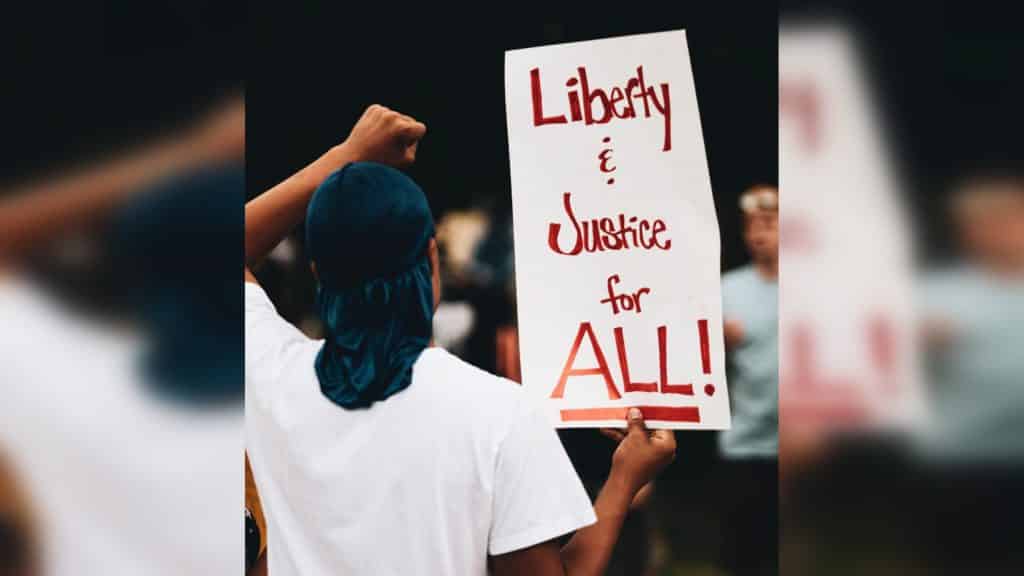
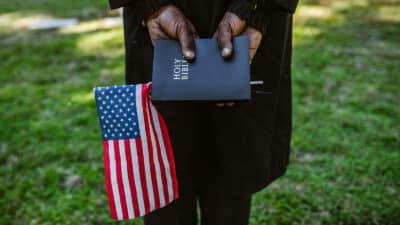
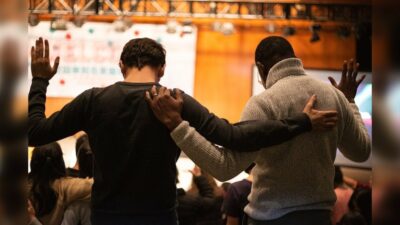


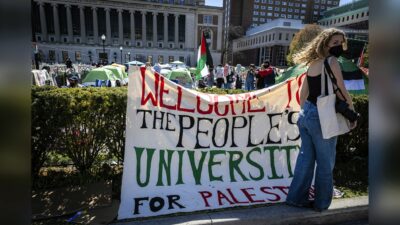










17 Respuestas
For those who think that racism does not exist, what is it that they would lose if they were to change their mind, or to think differently? What are they afraid of? How does it benefit them to say racism is a media construct?
Asked in a different way how would their life change if they held a different view?
I don’t think it is as simple as the fact that it would require action, because not everyone who believes that racism is real takes action.
It seems an attitude change that comes out of love, understanding and compassion for people of racial minorities, and listening to their lived experience is the very Christian thing to do. So if it is not being done, it leaves me with questions.
Tricia,
Good question; made me think. Obviously racism exists, but the larger claim about its representative role in society is the real question, I think.
I have 3 answers:
1. I am deeply committed to the idea of truth; which is central in so many ways to the culture wars of today, and my faith. If an assertion is not true, then it is more than a bother to me to agree with it and go along with it.
2. Going along with something is passively condoning it or implying it is correct. As the conversation about race and racism in America is charged along social and political lines, to try to simply say “racism is real and evil,” without the accretions, is near impossible, and to say that racism is real but push back on all that baggage is to be accused of racism.
3. I believe in standing up for people when they’re being bullied and slandered. The broad claims of racism and systemic racism in America usually have people and institutions in their crosshairs. When that claim isn’t accurate, I have an instinctive desire to stand up for them. Some impulse of my integrity requires it. For example, I didn’t like President Trump and I didn’t vote for him, but I still found myself defending him, because of how ludicrous and evil some of the claims against him were.
I believe you present a false dichotomy by the way you phrase the question. I doubt there are many Christians who consciously hold views that would be viewed as racist, or believe it isn’t evil. And I doubt there are many who think “It doesn’t exist.”
However, they may not believe with the wider assertions about how prevalent it is, or assume that it is the root cause of many of society’s ills, like police violence.
This is why so many Christians are stuck right now. It isn’t because they think racism is ok, or because they believe it doesn’t exist, but the only intellectual explanations they are offered don’t ring true to them, and the only available responses feel dishonest or incompatible with their faith.
The church will not find anything like inner peace about the issue of race until it throws off the baggage of the cultural conversation and stakes out its own theologically sound ground on the subject.
My opinion.
I have said this before, and I’ll repeat: we need to understand that all “isms” and ways of “othering” people evolve over time. While at its core, the definition of racism is the same, the way it manifests has shifted over time due to cultural norms, policies, and laws.
If you’re looking for racism to “look” a certain way, you’ll often miss it. What you must pay attention to is the impact. If something ultimately achieves the impact of positioning a person or group as inferior/superior or an “other” based on their race, then racism could be at play. This can be in the form of bigoted or prejudiced behaviors/beliefs OR in the form of policies and systems that divide or position people based on race (e.g., caste).
The challenges in awareness are two fold:
1. We focus on intent: if someone didn’t “mean” to, then it must mean there wasn’t racism at play. This is false. We’ve all hurt someone and didn’t mean to. That does NOT mean the person wasn’t hurt. Furthermore, it places US at the center of the situation rather than the injured person.
(continued…)
The reality is that it is neither one or the other but both. Racism exists where it is ignored and it does not exist where people are making a bunch of noise. The way the question is phrased is designed to stir up the fire instead of throw water on it. “There is neither Jew nor Gentile, neither slave nor free, nor is there male and female, for you are all one in Christ Jesus.” Yet the politics of our day throw that out as garbage and stir trouble up on both sides of this issue. If you really follow Jesus in your practice you are my brother or sister. What you look like does not matter. What you do with Jesus Christ is the bottom line and the only one.
(part 2)
2. We are so ingrained in it (like a fish in water), it’s hard to identify (until that water changes or we are removed from the water). This is really true when it’s ingrained in a culture in which one is the majority. (This is the concept of privilege is rooted in; when one is in the majority, there are privileges that come with that; it does NOT mean one “never had to work hard”). Many times what one says is “not really racism” or “reverse” racism is merely the equivalent of the water changing or one being removed from it.
Example: it was hard for me to see religious prejudice against non-Christians until hearing about of Jewish and Muslim friends fighting to get adequate time off for their holy days or explaining to their children why their holy days aren’t federal holidays or recognized in schools or media (holiday specials, school events, local decor, etc). Intended or not, refusing to acknowledge their religious holidays while only celebrating Christian ones has an impact of “othering” their faith or positioning them as “inferior”. I really learned of my Christian “privilege” here in the US when I lived in Dubai (I was “removed from the water”).
(THEN there is the notion of “I get to decide what makes YOU feel othered” or “I get to decide when YOU can talk about race/racism”, which is a WHOLE other problematic attitude…)
A lot of this can be addressed through empathy. We’ve all had times we’ve been “othered” or “less than” based on an identity. Why would we want others to experience this? Just because you can’t relate or don’t agree with how its impacting someone else doesn’t mean it doesn’t exist.
Marin, your comments are so insightful, kind, and thoughtful. I hope you write books and/or articles someday.
As a white person, I am always perplexed when white folks think they know more about understand racism better than people of color. The arrogance is unbelievable. These same folks are always playing down the reality of racism, as this article explains. In fact, they will also say that they themselves are the victims of racism, and that racism towards white people is a bigger problem today than racism towards people of color. All of this, of course, relieves them from having to listen to the voices of people of color when they call out racism they experience. I trust the victims of centuries long and still pervasive racism in the U.S. to be the experts on racism rather than those who knowingly or unknowingly, perpetrate racism. I
As a Black Man, I want to say that as hard as it is not to bring up politics, I must say that I have observed the political game for many, many years now! The Political Left uses racial division to do their bidding, and it is how they keep minorities in their camp. However, I do believe that the Black community is moving away from the Democratic control due to what they see from that political. party and their sycophants in the mainstream media. The Left is all over the shooting in Jacksonville because three Black persons were shot and killed, but when do you ever see the Left losing their mind over Black men killing other Black men which occurs daily and every weekend in our inner cities? Not ever! Joe Biden is no different. He plays the race card as well as the rest of them. I am A Christian who understands that my connection with Christ is the priority, not the pigment of my skin tone. I have a clear view of God and His love of humanity, no matter their ethnicity. Let’s get genuinely concern when Black men murder other Black men senselessly in our streets just as when a White person commits such an atrocity, and stop allowing politicians to divide us!
Wayne-
There’s a lot of irony in your comments. You are being just as divisive as you accuse – along both political AND racial lines.
I don’t like it when EITHER side accuses Black people of being “controlled” due to how they vote. It is condescending and disrespectful, implying Black people are too dumb to think for ourselves. There are PLENTY of well-educated, free-thinking Black people who just land on different sides of issues than you. I still disagree with Condi Rice on several issues, but am grateful she promoted and participated in respectful and intelligent debate as my college professor, shutting down any “you’re controlled” nonsense. That’s a divisive label intended to “thought stop” and insult. As Christians, we should do better, no?
I’d like to think people on ALL sides are upset over Jacksonville due to lives being lost, period. Furthermore, many are upset over Jacksonville because of the shooter’s alarmingly racist manifesto. I was also alarmed the shooter began by going to a historically Black CHRISTIAN college. I believe security turning him away was God’s protection of the campus.
BTW, interracial crime stands out because most crime is INTRAracial; it’s an “outlier” for crime to cross racial lines. Did you know White people kill white people at the SAME rate Black people kill Black people – at about 85%? It’s because most victims know their perpetrator. I notice you didn’t mention a concern for “white on white” crime; why not?
Great points Marin
Maybe I’m getting too paranoid (Not in an overly crazy sense) when I read comments online that begin with the phrase “As a black man” or “As a woman” or as “As X, Y or Z” and then they begin a rant demeaning the group that they claim to be from.
Wayne may be who he claims to be or maybe not. As they say “You can be anything or anyone you want to be on the internet”
The fact is that I see many in the black community who are concerned about ‘black on black’ crime in their neighborhoods. It is a concern that they are acting on.
Thank you for making sense in this senseless back and forth.
Racism is not part of the fruitage if the spirit. Jesus stated that “by their fruit (true Christians) would be known. It’s not rocket science, or even in need of the Pew Research to reach a conclusion. It is what it is.
Being predujiced and engaging in othering, is intrinsic to being human. We process the human environment to safeguard and sustain our self. This processing enabling our selves and confining our selves. We have evolved to do this.
Christianity has never transcended this dynamic. Arguably the Bible is, in crucial part, a manual as to what actions of prejudice and othering one should engage in. While acknowledging that the icon of Jesus sees universal transcendence of this nexus intended, the Biblical end of things is very often symbolised as an Armageddon of othering of the recalcitrant unsaved.
What has changed, and made prejudice and othering fundamentally problematic and problematical, includes globalisation and its interconnectedness, and degrees of freedom secured by the historically oppressed. Polarisation then resulting from a field of constituencies exercising their evolved capacities of doing prejudice and othering. Sore and awkward as this polarisation phase is, it sees us seeking better meta-perspectives with which to proceed.
I like what Marin has to say about “water”. Only I would move focus back to the processing human individual. Who is mediating and sustaining a self as best can: given how we have evolved; given the complex circumstance we find ourselves in.
This comment is entirely personal, my own experience. Recently I moved to a city about an hours drive from my previous home. This new city has a very high immigrant population. I have lived near this population before in two other cities and I have members of this group in my family. But many in this city are very new immigrants and many do not speak English. Due to the recent issues in the economy many have lost their very high paying jobs, the jobs they moved here for. Those of us from this region know that this industry always has extreme downturns when the economy is down. I am not sure if the new workers understood this before they moved here but there is a lot of anger being acted out in stores and on the roads.
I have found myself not reacting to this with compassion and understanding. No, I have found myself returning the anger and I realized I have a deep streak of bigotry that I never acknowledged or admitted to before it became so ugly and obvious.
Well, what is now emerging from formerly sealed depositions of the medical examiner and asst medical examiner in Minneapolis, is that there was a cover up of exculpatory evidence in the George Floyd cases. The amount of drugs in his system was lethal. That was covered up and not given to defense attorneys. State AG took over the case, and only NOW, is truth coming out. The false narratives of that being a racial injustice case, will be known.